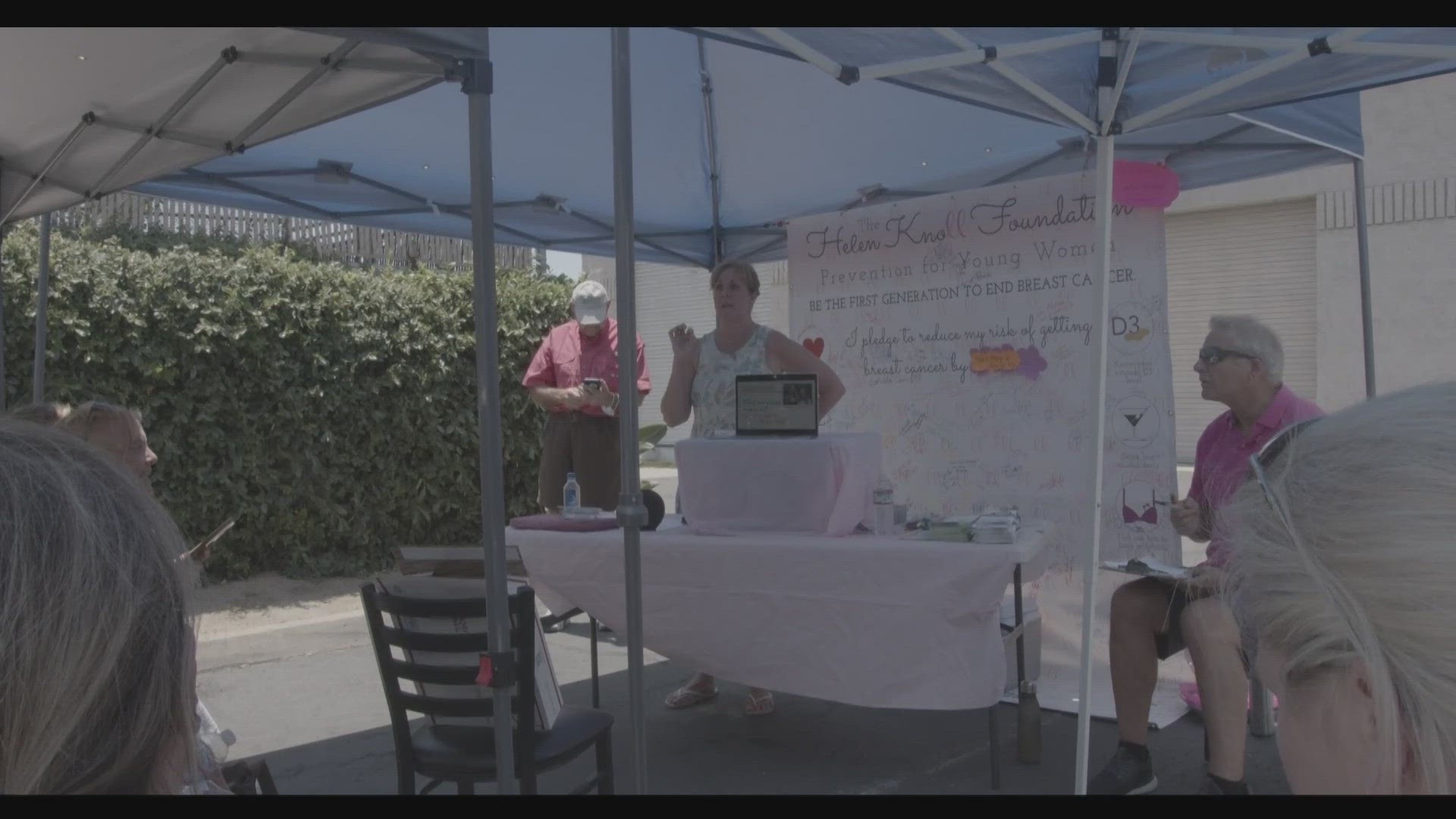SAN DIEGO — Every week, CBS 8 features a worthy nonprofit in a segment we call Working For Our Community.
Today is all about the Helen Knoll Foundation.
Helen, a San Diego mom, died young from breast cancer, but her family is making sure her legacy lives on.
"She was just so full of life and love, and always the life of the party — she would even turn grocery shopping into an adventure," her daughter, Christina Knoll said.
Helen Knoll was a great mom, wife and emergency room nurse.
"Were were living the life, of a young family," David Knoll added.
She was diagnosed with breast cancer at just 33. After eight years in remission, it came back, at stage four.
"Once she had passed away, I said as a dad there has to be things my daughters can be doing to be proactive and not just wait and see," Knoll said.
So in lieu of flowers, the family started the Helen Knoll Foundation the day of her funeral, and it's only grown since. They found there was a lot more information out there about what to do once you have it, so their approach to beating breast cancer has become preventing it all together.
"That's really where the foundation has been focused for the last 10 years, is on prevention and education for young women so we can be proactive and make those changes in our lives versus having to wait and see," Christina said.
They've used her story to educate girls across Southern California high schools and college campuses, groups and clubs — all to save countless other lives.
"There are obvious ones, like making sure you're getting enough water and exercising, decreasing your stress — but also knowing what type of estrogen and birth control and being proactive about what we're putting into our bodies is really important too."
They also encourage women to know their numbers, specifically D3 levels. The foundation is working with lawmakers to get the biannual test covered by insurance.
"UCSD research shows if you can keep your blood serum levels between 40 and 60 nannograms per milliliter, you can reduce breast cancer occurrence by 70 percent, and reoccurrence by 50 percent," David said.
The Helen Knoll Foundation also wants you to be your own advocate because early detection saves lives. The current recommendation for women at average risk is to start mammograms at age 50. For years before it was age 40, but again, Helen was diagnosed at 33 and died at 48.
"We can save lives and make our communities so much fuller," David added.
Visit the Helen Knoll Foundation's website to learn how to get help organizing an event, become an ambassador, volunteer your time or make a donation.
WATCH RELATED: Susan G. Komen 'More than Pink' Walk | Breast Cancer Awareness Month (Oct. 30, 2023)

